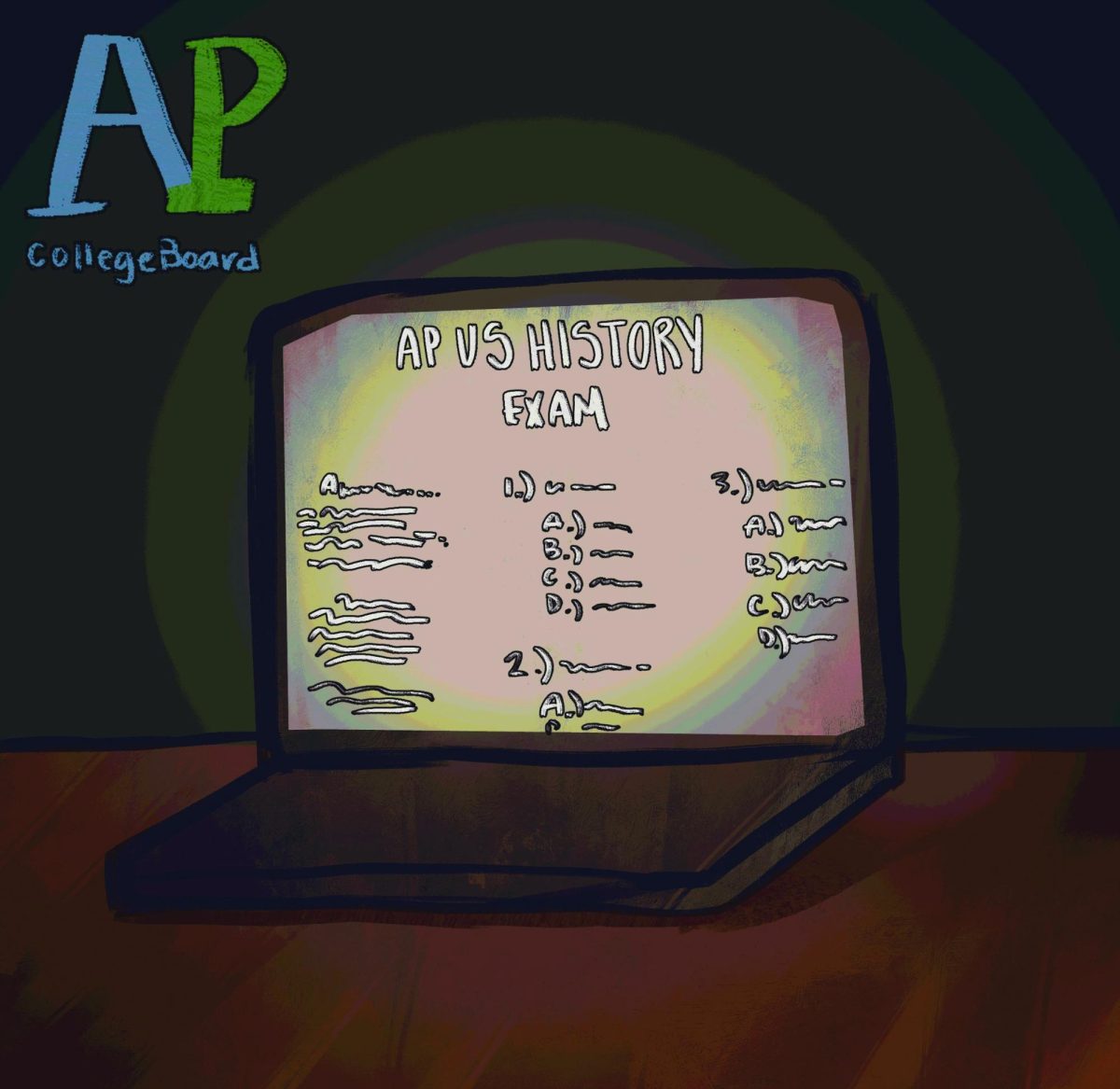This May, Advanced Placement United States History (APUSH) and AP World History classes will take their AP exams online for the first time. Marlborough is making this switch along with other independent schools across the country after the College Board began offering digital formats for seven exams in 2023. By 2025, nine AP exams will be offered online. Both history courses are adapting their curricula to better prepare students for this uncharted territory.
“If we hit the fast-forward button 10 years from now, all APs and standardized tests will be digital anyway, so why would we drag our feet on that?” Director of Studies and History and Social Sciences Instructor Jonathon Allen said.
This year in AP World History, students are learning in a digital format to mimic the exam in May. Students use laptops instead of paper for all assessments, including short answer questions (SAQs), long answer questions (LEQs) and document-based questions (DBQs). The only assessments that are handwritten are weekly chapter reading quizzes, but Allen plans for those to become digital next year as well.
Similarly, APUSH students type all of their essays on their computers, except for multiple choice questions and “quick quizzes,” which require one-word responses. The course is also increasing use of AP Classroom, an online platform where students can review for the exam with videos, practice prompts and multiple choice questions.
For DBQs, students in both classes are still provided a paper packet of the different sources they will analyze in their essays so they can annotate in the margins. However, on the exam in May, students will digitally annotate on Blue Book, the College Board’s online programming tool.
“The online format will be helpful when it comes to longer, written questions because typing is more efficient, and it’s much easier to switch things around or get rid of text on a computer,” APUSH student Penny ’26 said. “But I also think that despite the annotation features the online test offers, there’s an aspect of annotating on physical paper that’s better suited for brainstorming under time pressure.”
In Allen’s nine years of teaching, he believes this online format is benefiting students since they scored unprecedentedly high on a DBQ.
“I’m wondering if it’s because it’s typed,” Allen said. “You’re able to more quickly type out your ideas and write them so you can present more of what you know. I think it might have a correlation to higher scores in general.”
Meanwhile, students are divided over the issue.
“I like when you can pre-plan and write that on paper, but I like typing the actual essay online because it’s way easier to change anything if you want to,” AP World History student Sally ’25 said.
Students who previously took another AP history course through the handwritten format feel strongly about the change.
“Coming from someone who took the paper test for APUSH last year, I think I definitely prefer having a physical copy than taking it online because being able to scribble out your thoughts, cut out things for your thesis and mark checks on documents actually helps a lot when you start writing your DBQs,” AP World student Wynter ’25 said.
AP U.S. and World History students have historically performed very well on the handwritten exam in May.
“It’s hard to predict [if scores will change with online format] but, if anything, I’d imagine it would be a positive change as we have a year of preparation,” Allen said. “We’re going to start doing that more direct practice, so it will be a seamless transition in May.”








